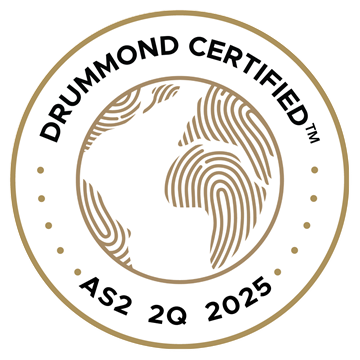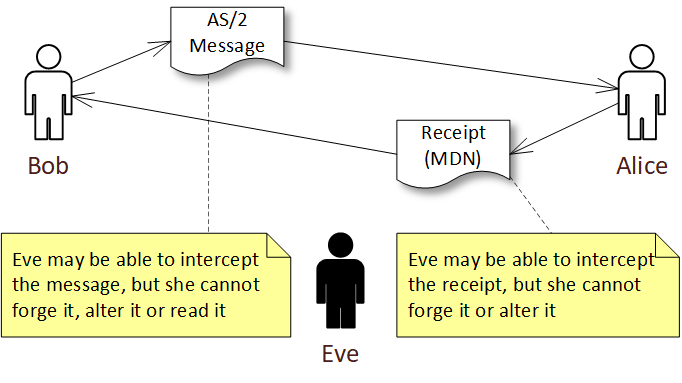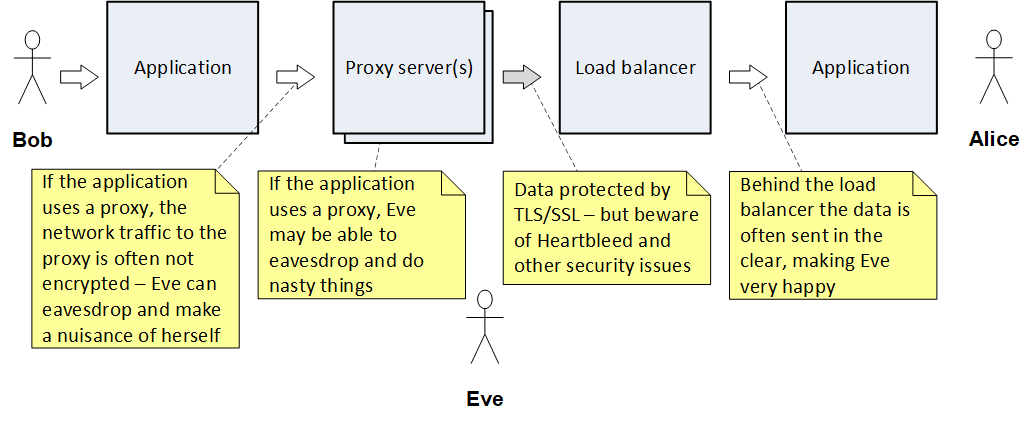
The application consist of three main components: receiver, rest server and sender. They all scale individually. The receiver and rest server scale based on load. If there are many inbound AS/2 messages, the receiver will scale out and add additional instances to keep up. If there are many concurrent REST requests, the rest server will scale out in the same way. Finally, the sender scales back based on the backlog of outbound messages. It can scale to zero when there is no traffic and scales up to the configured limit when needed. In essence the system has a very low standby cost and spins up automatically when needed in response to inbound or outbound traffic.
Core Connect uses Quarkus and compiles to native code. That means it starts in a flash, so Kubernetes can scale out and add new instances at warp speed. They spin up and start working in seconds. Furthermore, Core Connect has a very low memory footprint compared to a regular Java application. It typically needs a tenth of what a comparable regular Java application would use. That means higher density and lower cost, as well as better performance.
Kubernetes (and the underlying cloud) provides load balancers that route traffic to healthy instances. Connect has health probes for readiness and liveness. Kubernetes will automatically restart broken instances and will spin up new, healthy ones when needed. This provides very high uptime. In fact, the system is usually up and responsive even when a new version is deployed.
Core Connect has a custom HTTP layer, which means it has control over the low-level network traffic. That allows it to safely record network traces from the application in production. Having the network traffic is a real killer for diagnosing problems with a new partner.
Core Connect stores all meta-data in a searchable relational database, but the messages (original business messages, wire messages and network traces) are stored in efficient cost-effective blob storage. This provides the best of both worlds.
The user interface is developed in Angular and is designed specifically for AS/2. Connect proactively creates administrative tasks when it finds something that needs to be fixed, for example a partner certificate about to expire. Connect can also auto-connect to another Connect instance, exchanging certificates and configuration safely and without human mistakes.
Connect supports on-line certificate replacement – simply add new partner certificates and/or local party keystores. Connect will start using them and will phase out the old certificates automatically. CEM is also fully supported for exchanging certificates with partners.
Everything that can be done from the user interface is also supported by the REST API. This allows close integration with backend systems. Connect supports push and pull for message delivery and notifications. The REST API and the user interface support single sign-on with OpenID/OAuth. Use your own corporate login.
We know we have a winner. Want to know more? Please let us know.

While AS/2 is strong in retail, it is not industry specific. It is frequently encountered in finance, utilities, and any industry where security and guaranteed peer-to-peer delivery is important.
Over the years, many additions and optional features have been added.
Drummond Group certifies AS/2 products. This is valuable as there are many vague areas in the standard. Two certified servers should be able to communicate without problems.

Transport security does not always protect a message from end to end. Message security does.
When a message has been received, a receipt called MDN is typically returned, either on the same network connection or as a separate asynchronous HTTP request in the other direction. The MDN should ideally be signed. It includes a cryptographic hash of the original message contents, which can be used to prove that the message was received successfully. This is called non-repudiation of receipt.Signatures and encryption use public key encryption. It works exactly as with TLS/SSL. The public keys are given to other parties and are not sensitive. The private keys are retained and are very secret. To sign a message, a signature is computed with the private key that can be verified by the public key. Anyone can use the public key to prove that the message was signed by the private key and hence by the signing party. To encrypt a message, an efficient symmetric session key is created, encrypted with the other party’s public key, and used to encrypt the data. They can then decrypt the session key with their private key and use it to decrypt the actual message.
The license is 1000 SEK/month (excluding VAT). On top of that, there are infrastructure costs. The starter edition comes as a Docker image and runs well on-prem. With SQL Express and file storage (for really low volumes) that keeps the costs to a minimum. It can of course also run in the cloud.
Please contact sales for discussions.
The license starts at 6500 SEK/month (excluding VAT). On top of that there are the infrastructure costs from Microsoft. Please contact sales for details.
| Feature | Starter | Cloud | Enterprise |
|---|---|---|---|
| AS/2 version 1.2 (the latest) | ✓ | ✓ | ✓ |
| - AES encryption | ✓ | ✓ | ✓ |
| - AS/2 Reliability | ✓ | ✓ | ✓ |
| - AS/2 Restart | ✓ | ✓ | ✓ |
| - CEM | ✓ | ✓ | ✓ |
| - Basic Auth (BA, AS/2 Cloud) | ✓ | ✓ | ✓ |
| - Chunked transfer encoding (CTE) | ✓ | ✓ | ✓ |
| - Compression (AS/2 1.1) | ✓ | ✓ | ✓ |
| - Filename preservation (FN) | ✓ | ✓ | ✓ |
| - Multiple attachments (MA) | ✓ | ✓ | ✓ |
| - Multiple attachments filename preservation (FN-MA) | ✓ | ✓ | ✓ |
| - SHA2 digests | ✓ | ✓ | ✓ |
| - TLS/SSL (including TLS client auth) | ✓ | ✓ | ✓ |
| - Certified by Drummond Group | ✓ | ✓ | ✓ |
| Full REST API | ✓ | ✓ | ✓ |
| User-friendly web interface | ✓ | ✓ | ✓ |
| File transfers (local, FTP, FTPS, SFTP, Azure Blob, AWS S3) | ✓ | ✓ | ✓ |
| SFTP server | Licensed separately | Licensed separately | Licensed separately |
| Highly available | ✓ | ✓ | |
| Scales up and down to handle peaks | ✓ | ✓ | |
| Number of containers/pods | 1 | Unlimited | Unlimited |
| Single sign-on (*) | ✓ | ||
| Centralized metrics (*) | ✓ | ||
| Centralized logs (*) | ✓ | ||
| Installation and configuration support | ✓ | ||
| Help with connectivity to internal systems | ✓ | ||
| Support | Basic | Basic/Extended | Basic/Extended |
E-mail:
info@icecoresoft.com
sales@icecoresoft.com
 Peter is the CEO of IceCoreSoft. He has a long retail background, among others as Head of IT for ICA Sweden.
Peter has founded several companies such as Tarento, with a growth from 1 person to 250 persons in 4 countries in 4 years.
He has also founded Katmai – a leading provider of Datapool software.
Peter is the CEO of IceCoreSoft. He has a long retail background, among others as Head of IT for ICA Sweden.
Peter has founded several companies such as Tarento, with a growth from 1 person to 250 persons in 4 countries in 4 years.
He has also founded Katmai – a leading provider of Datapool software.
 Erik is the main developer and technical visionary. During his career, he started with embedded development in C and
assembly, moved on to client/server, mainframes and lately Java and C# mostly targeting the cloud. He is also an
Enterprise architect, a performance expert and an integration specialist. In short, he likes to do a little bit of
everything. For Connect, his experience with B2B and AS/2 as an integration expert at Oracle, the many years as architect
and AS/2 troubleshooter at GS1 Sweden and 25 years as a Java developer were put to good use.
Erik is the main developer and technical visionary. During his career, he started with embedded development in C and
assembly, moved on to client/server, mainframes and lately Java and C# mostly targeting the cloud. He is also an
Enterprise architect, a performance expert and an integration specialist. In short, he likes to do a little bit of
everything. For Connect, his experience with B2B and AS/2 as an integration expert at Oracle, the many years as architect
and AS/2 troubleshooter at GS1 Sweden and 25 years as a Java developer were put to good use.